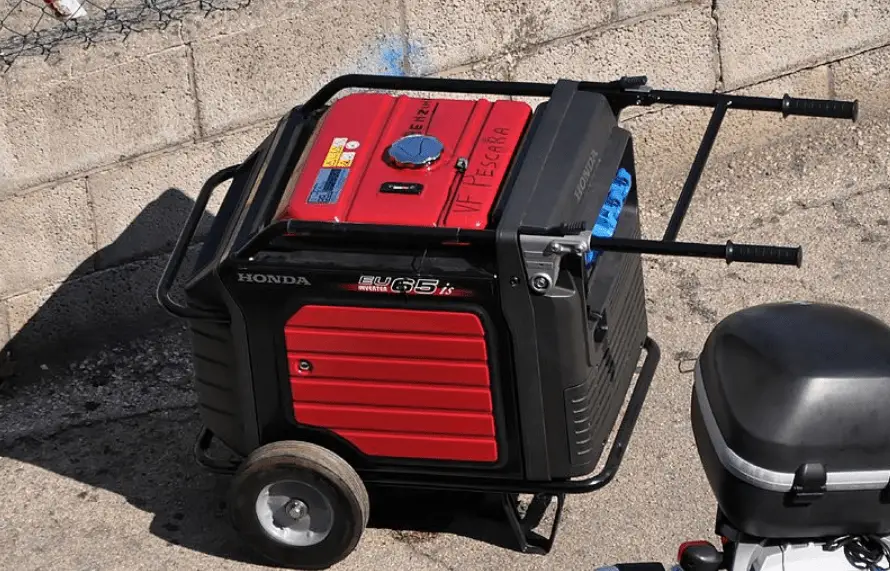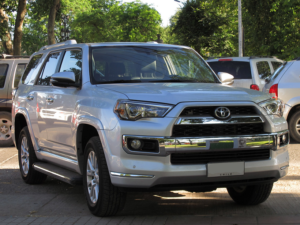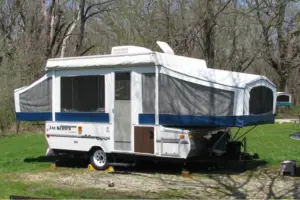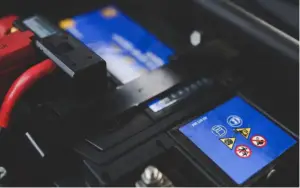As an RV owner, you’ll agree with me that there is nothing as irritating as having a generator that won’t start.
You would not want to imagine a scenario where you are parked off-the-grid and then your RV generator fails you!
Unfortunately, this frustrating situation is a common thing. It can happen to you anytime. In most cases, the generator fails to start when there is a minor setback rather than a more complicated issue with the machine.
If you ever experience such an occurrence, don’t stress too much. You can troubleshoot the generator and get a solution.
Here are some of the possible reasons why your camper or travel trailer generator won’t start and how to fix the issues.
Understanding Why Your RV’s Generator Won’t Start?
Lets go through all the possible reasons why a generator in your RV wont start. A lot of people already know and follow this. But, at times when you are on the road at a campsite, things like this wont click your brain. And that’s when you need this step by step guide to make it work.
Low Fuel
A possible reason why your recreational vehicle’s generator won’t start is low fuel. This sounds obvious but it’s advisable to, first of all, confirm whether the fuel tank has enough gasoline or not.
The generator runs on either propane, gas or diesel. When the fuel runs low, it won’t start in any way. The only solution here is to add enough fuel. So before you start getting stressed over what to do, it’s a good idea to, first of all, confirm the fuel levels in the generator.
If you notice that the fuel tank is below the one-quarter mark, it’s a clear indication that fuel is the reason why the generator isn’t starting. If you are fueling the generator with propane, ensure that the tank contains enough gas and also make sure that all the valves are opened.
Please note that – typically gasoline (any gasoline) older than 8 weeks can have a damaging impact on your RV’s engine.
Such gasoline should be drained completely and the tank refilled with fresh gas. Ensure you use a safety kit when emptying the bad fuel from the tank.
What to Do
That’s a no brainer, right? Add enough fuel and try to restart your engine.
Low Engine Oil
Yet another issue that can cause your RV’s generator not to start is low oil. Engine oil is as important as having enough gasoline to run your generator.
That means the generator won’t run once the oil levels go below normal. In the modern world, almost all the generators come fitted with a special sensor meant to detect the oil levels in your Rv’s generator.
It is this sensor that causes the generator to shut down automatically anytime the oil level goes low. You are advised to change the generator’s oil if it has exceeded more than 50 hours in the engine (or 20 hours for new generators).
Also, check whether there is any leakage that could be causing the oil levels to go down.
What to Do
Check the oil levels on your RV’s generator using a dipstick found in the crankcase. Should you notice that the oil level is low, refer to your manufacturer’s guide to know which sort of engine oil is best suited for your generator.
Observe all the steps outlined by the manufacture so that you don’t cause more issues. Also, note that you should replace the filters whenever you are adding more oil.
Dead Battery
If you happen to confirm that the issue with your RV generator is not low fuel or low oil, it’s now time to check the battery. The battery could also be an issue and your generator won’t run until you sort this out.
If the battery is dead, your RV’s starter will not function as it should. To troubleshoot this issue, you can try to start with an auxiliary recoil starter (that is if your generator has one).
In the case where your generator does not have a recoil starter, you can try to recharge the battery and see whether the generator starts.
Likewise, jumper cables could help you to jump-start the generator’s battery using another battery (say your car battery). If you try all these and the generator won’t start, there is no doubt that your battery is completely dead.
What to Do
When the battery is dead, there is no other solution than to replace it. You should get a new one and connect it properly following all the guides. If the battery was the only issue, the generator should start once you have a good battery.
The Choke is too Closed or Open
When your RV’s generator isn’t starting and you’ve tried all the above troubleshooting methods to no avail, it’s now time to have a look at the choke. The choke is meant to regulate the amount of air entering into the carburetor amid startup.
There will be a problem when the choke is either allowing too much or too little air in the carburetor. The quantity of air mixing with your gasoline amid combustion will determine how the generator is behaving.
What to Do
If you’re starting a generator cold i.e. a generator that has been running for the past few hours, make certain that the choke is completely closed. You can gradually open the choke as the generator begins to warm.
Likewise, for a generator that has been running recently and shut down briefly, the engine will be warm and in this case, the choke should be halfway open to restarting the RV’s generator.
Chocked Air Filter
If you’ve tried to troubleshoot the choke and found no issue, you can consider taking a look at the air filter. Normally, the air filter will cause the generator not to start if it is clogged with dust and/or debris. This happens because a clogged filter prevents the carburetor from receiving enough air for complete combustion.
What to Do
You can easily access the air filter and inspect it visually to determine whether there are debris or dust particles. If you happen to confirm the presence of these such clogs, consider supplanting the filter and your generator will start (assuming this was the only issues)
Issues with the Spark Plug
Spark plug issues can likewise occur and cause the generator not to start. This is an issue you can detect if the generator does not attempt to turn on amid startup. To examine the spark plug, you will need to remove it from the engine.
Once you remove it, you will be able to observe whether the spark plug contains deposits that need to be cleared away or not. If there are more serious issues with it then you’ll need to supplant it.
What to Do
Clean all the debris you see and then adjust the electrode gaps as per the guidelines given by your owner’s manual. Hold the spark plug against your motor’s crankcase and then pull the recoil starter to double-check whether the spark plug is okay.
A good spark plug should produce blue sparks when this is done. If doing this doesn’t help, consider replacing the spark plug and then try starting the generator once again.
Clogged Carburetor
You can expect your RV’s generator to have starting issues if the carburetor is clogged. Perhaps you forgot to drain it before putting the generator away for a while. Old gasoline will form clogs in your carburetor thus making it hard if not impossible for new gasoline to get through.
What to Do
You should clean the carburetor and see how the generator behaves. When cleaning it, ensure you’ve closed the fuel valve and thereafter remove the bowl found at the bottom of your carburetor.
Clean out all the debris using a brush and towels and use a safety pin or sewing needle to clean the brass jet nozzle. Don’t forget to turn the fuel valve before restarting the generator.
Oil Sensor Has Issues
You generator comes fitted with a special oil sensor meant to prevent it from starting whenever the oil level is low. Just like anything else, this sensor can also malfunction and hence cause starting issues regardless of the oil levels in your generator.
What to Do
To determine whether the oil sensor is the cause of all the starting problems you are facing, disconnect it from the motor’s crankcase and try restarting the generator.
If your recreational vehicle’s generator starts when the sensor is disconnected, it a clear sign that the sensor is malfunctioning. In most cases, the sensor will function as it should once reconnected again after a few minutes.
If it fails to function properly after doing this, consider supplanting it.
NOTE. You should never disconnect your oil sensor when you’ve not topped off the oil tank. This can damage your generator and incur you more than you think. Also, ensure that your filter is not clogged before taking out the oil sensor.
Still cant get the generator starting? Probably the problem is bigger and you may want to see the professional now. By the way getting a standard or branded one should not have major issues and also it will last much longer. Check out the list of most preferred generators for RVs.
Older the generator higher are the chances of seeing many of these issues. By the way did you know how long a RV generator can last? Check out the linked article, yours may have reached the limit (it may have clocked the number of hours it is supposed to run)
Conclusion
The above are some of the issues that can cause your RV’s generator not to start as it should. Before getting stressed on what to do, it’s advisable to troubleshoot the above issues and see where the problem is coming from.
As you may have noticed, most of these issues are not complicated and you can troubleshoot them on your own without incurring anything. Good maintenance routine can help to avoid all these issues.





